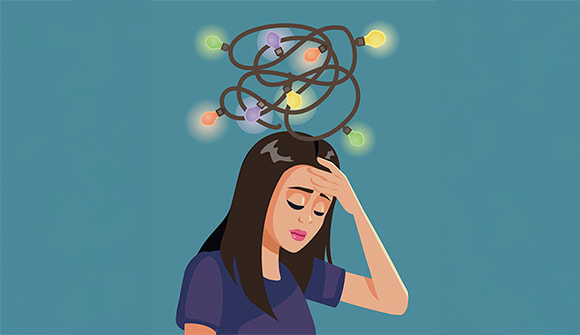Autism in adults
Diagnoses increasing beyond childhood.
Article Author: Juliette Allen
Article Date:

Parents are taught from their child’s earliest years to watch for potential signs of autism spectrum disorder (ASD): poor eye contact, limited or no speech, and repetitive behaviors, to name a few. But experts are seeing more referrals for ASD evaluations and subsequent diagnoses in adults who may not have shown the classic signs in their earlier years.
“We know that in neurodevelopmental disorders like ASD, we see clinically significant symptoms when the demands on the person exceed their abilities,” said Karina Jeifez, PhD, a clinical psychologist with Baptist Behavioral Health and Wolfson Children’s Behavioral Health. “This means we might not notice symptoms at earlier ages and some people may not be diagnosed until later, which could be age 7, 15, 25 or older.”
Camouflaged: Signs of autism in adulthood
Autism spectrum disorder can affect a person’s social skills, communication, relationships, occupation and emotional regulation. In contrast to children who are diagnosed at a young age, adults with undiagnosed ASD may have learned how to camouflage their symptoms or modify behaviors to fit in.
“For example, with children, we look for poor eye contact, but an adult may have been socialized to understand that it’s rude not to look someone in the eye and thus, an adult could show relatively adequate eye contact or even difficulty looking away,” explained Dr. Jeifez.
An adult with ASD may experience:
- Trouble making or maintaining friendships.
- Difficulty understanding others’ feelings.
- Inability to recognize social cues in the workplace.
- Anxiety when routines are changed.
- Attention to small details or patterns.
- Intense interest in select subjects or activities.
Testing and treatment for ASD in adults
Early intervention is the gold standard when it comes to children, but does that mean people diagnosed later in life have missed the opportunity for effective therapies?
Definitely not, said Dr. Jeifez, though the journey to diagnosis and intervention may have been long.
“We know people diagnosed with autism in adulthood are about three times as likely as those diagnosed in childhood to report having psychiatric conditions like anxiety, depression or behavior disorders,” Dr. Jeifez said. “It’s unclear whether they were misdiagnosed with those conditions or if they may be the effects of living without a proper ASD diagnosis throughout childhood and adolescence. This makes some people wary of therapy’s effectiveness, but getting an ASD diagnosis can help guide the therapist’s approach and improve progress.”
According to Dr. Jeifez, there are several types of therapies that may benefit adults with ASD.
- Applied behavior analysis (ABA): A one-on-one approach to improve social skills based on learning, understanding and ultimately changing behavior.
- Cognitive behavior therapy (CBT): A structured type of talk therapy that focuses on awareness of intrusive or negative thinking to help a person manage those emotions and respond to situations in an effective manner. According to Dr. Jeifez, CBT is especially helpful for adults with ASD who also have other mental health conditions such as anxiety or depression.
- Dialectical behavior therapy (DBT): Addresses reactivity, impulsivity and mood control. DBT may be beneficial to people with ASD who are struggling with emotional and sensory challenges.
“Social skills training can also help individuals with ASD learn to interact with others in a positive manner,” Dr. Jeifez said. “Sensory integration therapy is helpful for persons with ASD who are strongly affected by sensory input like smells, sounds and light.”
In recent years, adult diagnoses have risen, in part due to increased awareness by both the public and health care providers of the disorder and lesser-recognized signs. People who think they may have ASD and would like an evaluation should speak with their primary care physician, who can make a referral.
Unique strengths, meaningful contributions
As ASD diagnoses continue to climb in both adults and children, one thing Dr. Jeifez wanted to emphasize is the importance of removing the stigma.
“It’s important for us to know not only that ASD doesn’t prevent someone from making meaningful contributions to society, but also that these individuals can have some unique strengths and talents we can benefit from,” she said. “From attention to detail and exceptional memory to unique ways of thinking about problems and persistence in solving them. As members of society, we need to look not only at the challenges people with ASD face but also at the strengths and capabilities these individuals possess and help them find the place where they can function optimally and contribute.”
If you’re an adult and you suspect you have autism spectrum disorder and are interested in pursuing an evaluation, talk to your primary care physician who will gather more information and make a referral, if needed. To find the right provider for you, call 904.202.4YOU or fill out the appointment request form.



